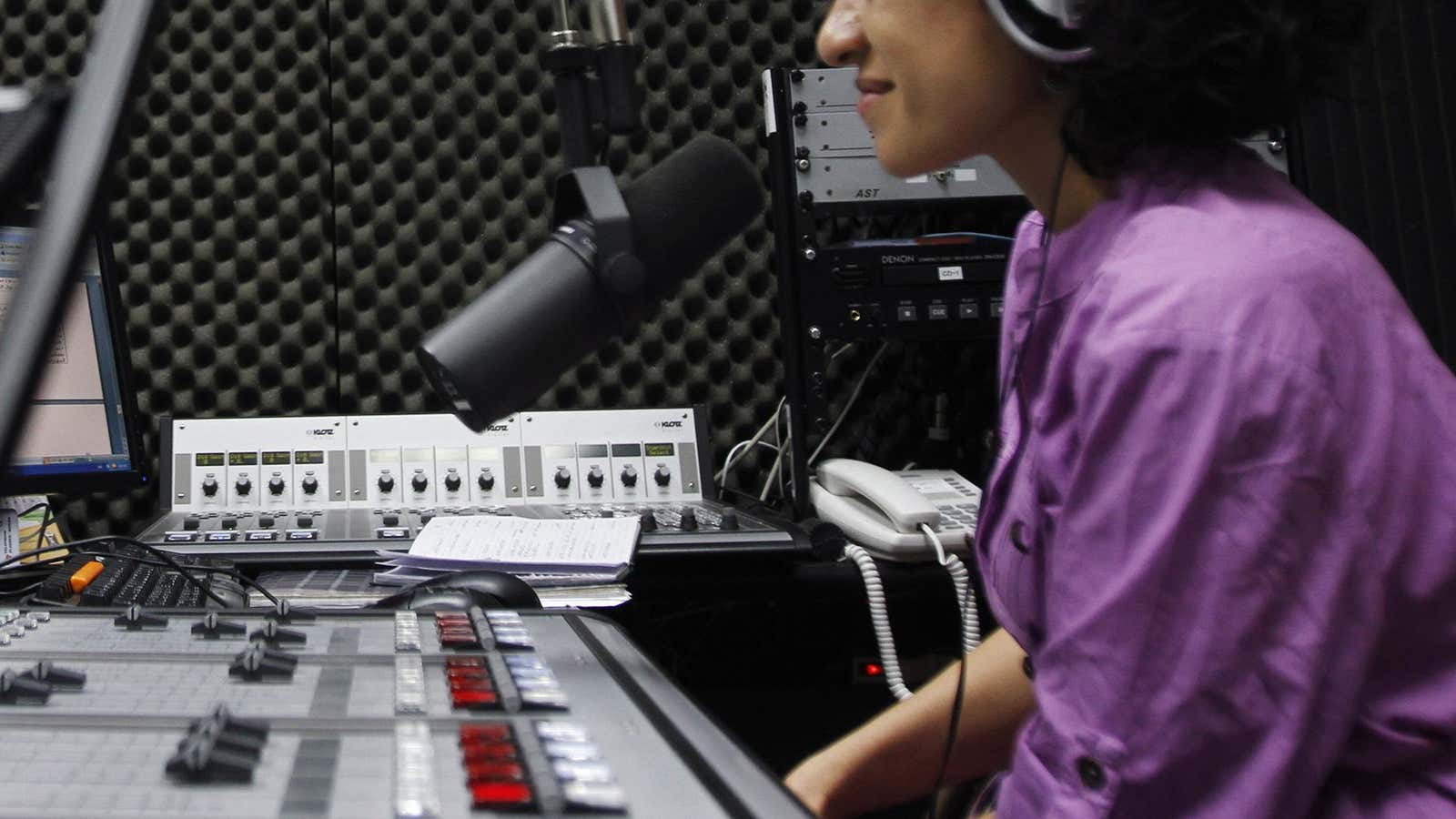I launched a blog in 2008 and watched it grow to 7 million visitors.
Had I started that blog today, writing the exact same words, I would get closer to zero readers.
Why? It all comes down to timing.
In 2008, there were lots of blog readers—but few blog creators. Success was waiting for us early creators not because we were all necessarily so great, but because there were so few of us.
After I launched my blog, I got a book deal and regular columns in major publications.
Julie Powell did even better. Her blog about cooking Julia Child recipes led to a film starring Meryl-freaking-Streep. Celebrity and pop culture commentator Perez Hilton reportedly earned $575,000 a month at one point for his eponymous blog.
Today, no one’s blog about cooking is leading to an A-list celeb endorsement, of course. But their podcast is.
Podcasting today is analogous to blogging, that moment before it blew up.
According to research, 144 million Americans have listened to a podcast, but only 750,000 podcasts exist on Apple Podcasts. This means there’s an abundant audience looking for the next show to fall in love with.
There’s room for you, too … if you act soon.
In the beginning
When blogging began, in the early 2000s, you needed serious technical skills to publish and maintain a blog (which is why so many early blogs were about technical topics like coding—and, as a reflection of those fields at the time, why they were predominantly written by men.) Then platforms like WordPress, Typepad, and Blogspot democratized the blogging process and removed the tech barrier, leading to a rush of non-technical blogs featuring everything from news commentary to fashion to mommy and parenting advice.
Today, it’s easier than ever to launch a podcast and gain an audience.
Which microphone should I buy?
Do I need a recording studio?
What’s an RSS feed?
Why do I need a hosting platform?
How do I publish to Apple Podcasts?
We now have access to a seemingly endless stream of answers for all of these questions.
An uptick in podcasts has also prompted a whole host of platforms that smash all those things into one easy-to-use, hold-your-hand launch. I created one that makes podcasting as easy as opening your computer and starting to talk, and other platforms followed suit. Voices that would not even have made it to the cutting-room floor in the early aughts are now being heard.
Let’s talk
Writing is intimidating for many people. But talking is just … talking. It’s easy to delete a paragraph 10 times and rewrite it. But with podcasting, you can share your opinions without laboring over grammar, punctuation, and sentence structure.
The human voice conveys nuances that get lost in text (I’m still waiting for a sarcasm font in Google docs.)
Podcasts deliver a voice straight into the ears of its audience members. They accompany people throughout their day, and integrate into daily life in ways that text, writing, and video don’t.
Many criticize blogging because they think success is contingent on a blogger being conventionally attractive. That’s not the case with podcasting. All you hear is someone’s voice and, by extension, their ideas. If you have an interesting point of view or story, you can stick out.
Podcasts intellectualize content creators in a way that visual platforms do not because they’re inherently skewed toward people that conform to society’s idea of what looks good.
I listen to The Daily all the time. I have no idea what host Michael Barbaro looks like. Not a clue.
If this article leaves you with anything, it should be this: It’s your turn to start.
Podcasting will be like the blogging revolution—but faster. Every company will have one, and many of the biggest ones will be updated daily (again, I reference the New York Times The Daily). More people are consuming podcasts— 51% of Americans.
Nobody is going to tap you on the shoulder and tell you it’s time to launch a podcast. That comes from your desire to share your story with the world.
So, don’t wait. If you start your podcast three years from now, it’ll be way too late.
